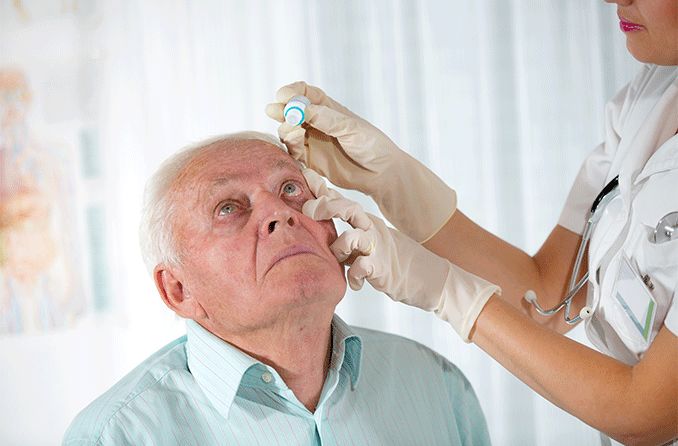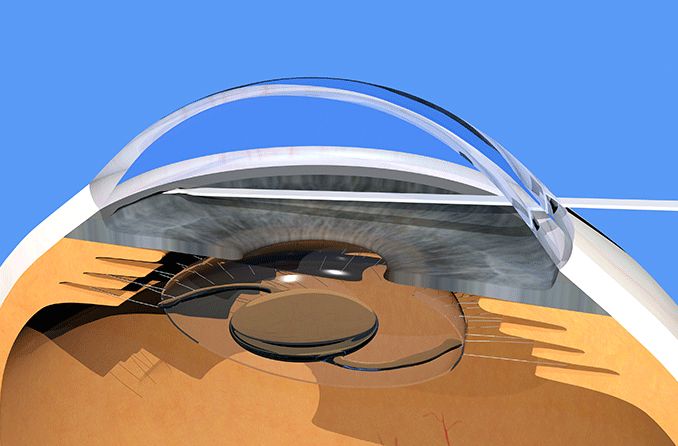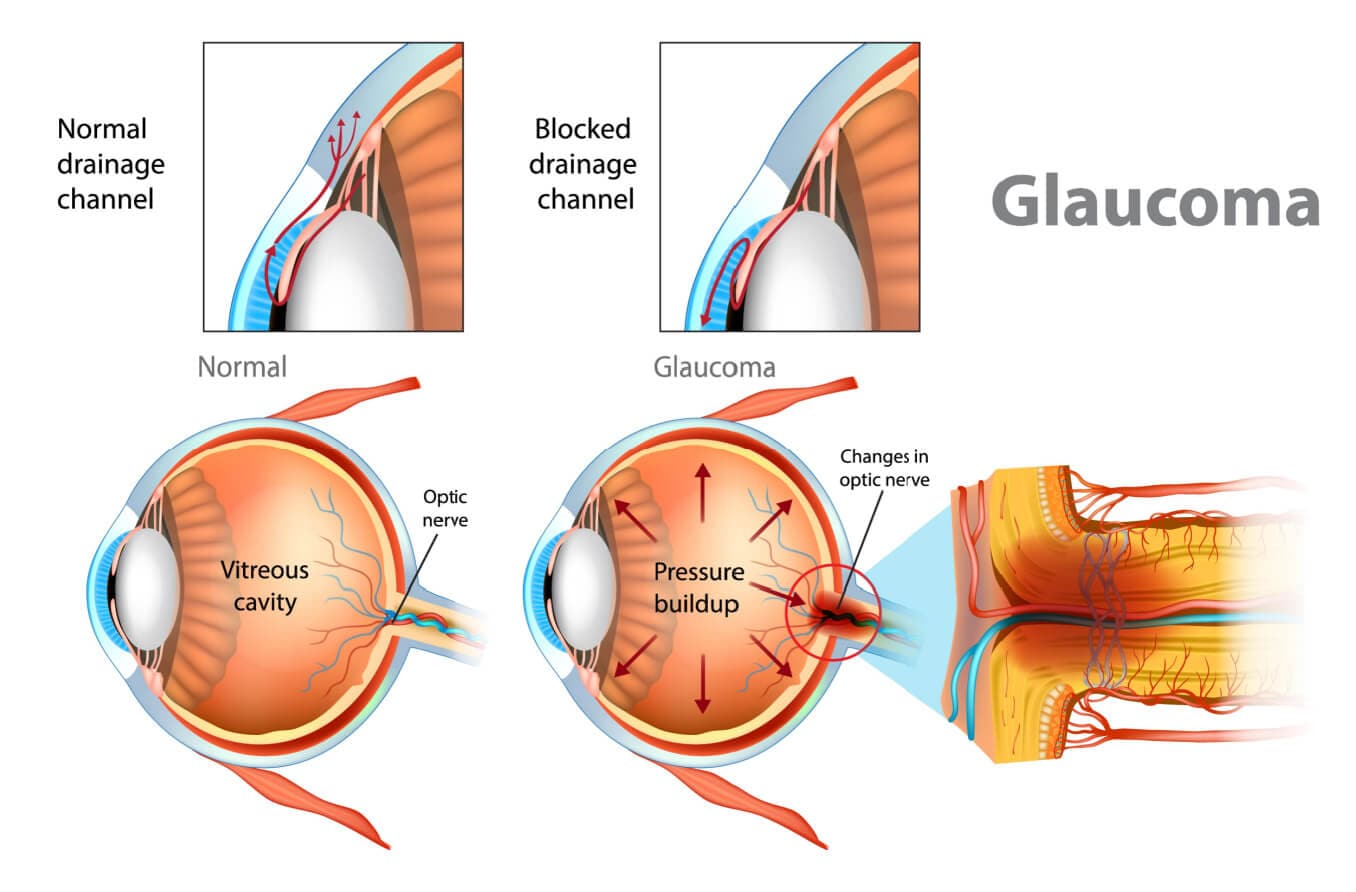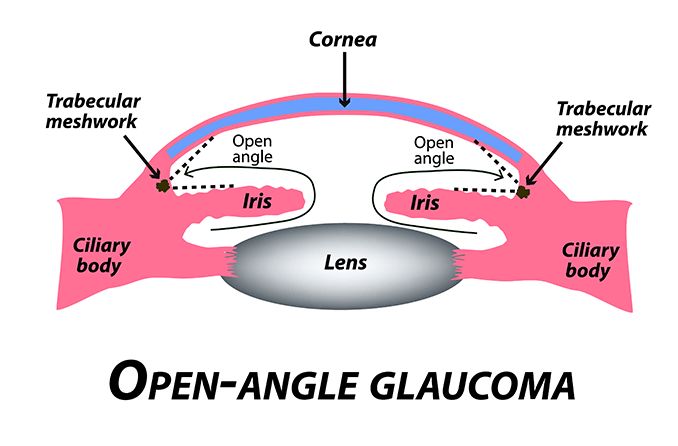Glaucoma is a serious eye disease that can cause permanent vision loss. The disease often has no warning signs, and if left undetected and untreated, it can lead to blindness.
In most cases, glaucoma is caused by too much pressure inside the eye (intraocular pressure, or IOP), which damages the optic nerve and causes vision loss.
As soon as glaucoma is found, patients should follow their eye doctor’s glaucoma treatment recommendations to slow or prevent vision loss.
Natural remedies for glaucoma
Although there is no cure for glaucoma, there are some natural health and wellness tips that might help your eyes respond as well as possible to medical treatment. Natural remedies for glaucoma are not enough to treat the condition on their own and will not cure the disease, but they may be a good supplement to prescribed treatment.
Be aware of “fast fixes” and so-called miracle remedies for glaucoma you may find online. Always speak to your eye care specialist before beginning a new regimen that could affect your condition or your health, or interact with your current treatment.
From incorporating certain foods and nutrients into your diet to ending unhealthy habits, there are several ways to implement drug-free, natural “remedies” to complement your glaucoma treatment.
Adopt a healthy diet for glaucoma
Good nutrition has been shown to play a role in eye health and may even slow the progression of conditions such as glaucoma.
Recent studies suggest that certain vitamins and nutrients may have an impact on IOP and the incidence and progression of glaucoma. In particular, fruits and vegetables that are higher in vitamins A and C, as well as carotenoids, appear to be helpful.
For this reason, some of the most important vegetables to incorporate into your diet include leafy greens like spinach, collard greens, kale and Brussels sprouts.
Antioxidants also may help prevent further damage to the optic nerve. You can find antioxidants in foods like cranberries, black and green teas, flax seeds, pomegranates, and acai berries.
Other foods like peaches, carrots, beets, green beans, and radishes are important to include in your fruit and vegetable intake as well. Experts warn against drinking too much coffee and caffeinated beverages, however, as caffeine may increase eye pressure.
SEE RELATED: Boost your diet to protect aging eyes
Exercise regularly to promote healthy IOP
Moderate exercise can help you maintain healthy IOP levels. This is because exercise improves blood flow to your eyes and throughout the rest of your body. Vigorous exercise, on the other hand, can elevate IOP, so don’t overdo it.
Some yoga positions can also contribute to a higher IOP, which is not good for glaucoma patients. If you have glaucoma and practice yoga, be sure to avoid poses such as headstands and prolonged downward-facing dog, legs up the wall, plow and standing forward bends.
SEE RELATED: Ocular hypertension: 5 causes of high eye pressure
Natural supplements for glaucoma
If you have a vitamin or mineral deficiency, natural and over-the-counter supplements can be taken to restore it, including:
- Zinc
- Calcium
- Magnesium
- Vitamins A, B-complex, C and E
All are particularly important for those with glaucoma. If you feel that your nutrition intake is inadequate, taking a daily multivitamin can help.
However, it’s important to remember that vitamin supplements are not clinically proven to prevent or cure glaucoma. Always check with your doctor before taking any kind of medication or supplements to treat your glaucoma, even if you are considering natural products.
Herbs for glaucoma
Certain herbs are believed to aid in glaucoma treatments. Specifically, ginkgo, bilberry, and forskolin may have some benefits. Benefits of these herbal remedies for glaucoma include:
- Ginkgo (ginkgo biloba) : In some scientific models, this herb has shown an increase in ocular blood flow.
- Bilberry (vaccinium myrtillus) : Bilberry is popular thanks to its strong antioxidant nature. One study showed that bilberry decreased retinal ganglion cell damage in mice, but there have been no studies showing such an effect in humans.
- Forskolin (coleus forskohlii) : This herb may lower IOP when applied topically by reducing the rate of aqueous fluid within the eye.
- Medical marijuana (cannabis) : Some studies suggest that marijuana may temporarily lower IOP, but only with frequent use, which can lead to potentially dangerous side effects.
It is important to note that while these herbs have shown promise in some studies, they are not clinically proven treatments for glaucoma. Some herbs may even have harmful effects or negative interactions with other medications, so check with your doctor before using any herbal remedies for glaucoma. And never replace doctor-prescribed or -recommended treatments with herbal remedies.
SEE RELATED: Glaucoma and marijuana: Treatment risks and benefits
Natural prevention of glaucoma
If you are at risk for glaucoma, there may be certain everyday habits that you can start or stop to lower your risk of a diagnosis. In addition to maintaining a healthy diet and exercising moderately, consider incorporating the following into your lifestyle:
- Maintain a healthy weight. Both high and low body mass indexes (BMIs) can increase the risk of glaucoma.
- Avoid smoking.
- Consider meditation. Stress appears to increase a person's risk of high IOP. Some research has shown meditation can help reduce eye pressure if practiced regularly.
- Practice good dental hygiene and see a dentist on a regular basis. Some research has shown that periodontal (gum) disease is associated with an increased risk of primary open-angle glaucoma (POAG).
- Get screened for glaucoma. This is especially important if you have a family history of the disease.
SEE RELATED: Glaucoma FAQ
Consult your eye doctor
Vision loss from glaucoma cannot be reversed, so it’s critical that the disease is detected early and managed properly. Dietary supplements and healthy lifestyle changes may be useful to complement conventional glaucoma treatments — but natural glaucoma “remedies” should not be used as an alternative to glaucoma treatment prescribed by your eye doctor.
Be sure to discuss any natural remedies for glaucoma with your eye doctor before you consider taking them. Some might actually interact with your medications, which could be harmful.
REGULAR EYE EXAMS ARE VITAL FOR EVERYONE, particularly for those who have been diagnosed with or are at higher risk of getting glaucoma, so don’t wait to schedule routine exams with an eye doctor near you.





